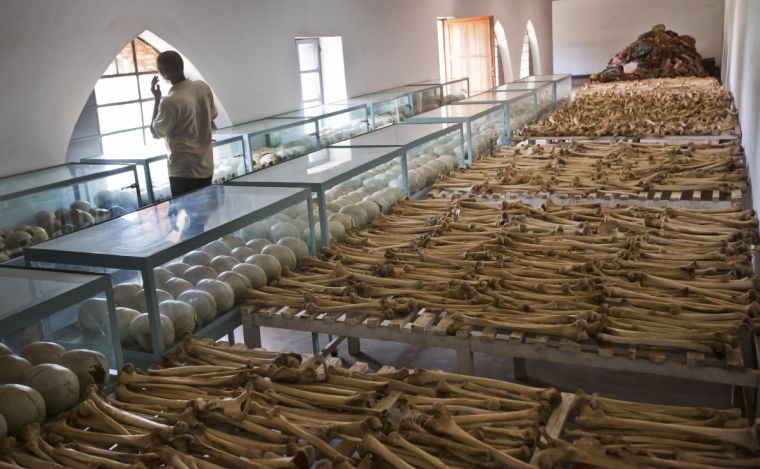Rwandan genocide: 20 years on

On April 7 the world remembers the harrowing genocide that took the lives of an estimated 800,000 Rwandan civilians 20 years ago. The horrific events devastated an entire nation and left behind a legacy of grief and suffering which still impacts survivors' lives today.
The deplorable mass murders took place in the context of a civil war in Rwanda between the Hutu-led government and the Tutsi-majority Rwandan Patriotic Front. Following the death of President Juvénal Habyarimana – whose plane was shot down over Kigali on April 6 1994 – Hutus took to the streets with extreme violence, sparking the genocide which would last 100 days.
Ken Isaacs, Vice President of Programmes and Government Relations for international development charity Samaritan's Purse, travelled to Rwanda during the genocide. He saw the heartbreaking effects of sectarian violence first-hand.
"I remember the day that we drove into Rwanda; there were just two of us in the car," Ken recalls.
"We were immediately taken aback because there was no sound anywhere; it was deathly still. Birds weren't chirping, there were no dogs barking or people moving anywhere. It was as if it was a Hollywood landscape that hadn't yet been populated with sound effects or actors."
During his time there, Ken was involved in running refugee camps in Tanzania and Rutare, where Samaritan's Purse provided medical care, food and water, and began a tracing and reunification programme for orphaned children. His team also reopened the central hospital of Kigali; all of the original doctors, nurses and patients had been murdered or had fled. He remembers having to remove hundreds of bodies, crudely slashed with machetes, from the blood-drenched wards.
"We also built a chapel, and heard amazing stories of survival and horrible stories of death," Ken says, noting that, 20 years on from the tragedy, the people of Rwanda are still struggling to come to terms with their immense loss.
"The genocide changed everybody who was there at that time. Nobody in Rwanda came out the same; even those who survived were changed forever," he says.
"I've witnessed four genocides – Rwanda, Bosnia, Kosovo and Darfur. In terms of the legal definition of war crimes, genocide and crimes against humanity, I don't know those. But I know what mass murder is, and beyond any doubt Rwanda was the worst. As a Christian I can say I was acutely aware of the darkness in the land; there was real evil there. We could all feel it.
"Death is always a horrible thing, but death perpetuated by the unbridled darkness in the heart of man is something beyond horrible; it's dark and evil. I've never seen anything compared to that kind of atrocity, and I hope to never again."
Samaritan's Purse is still involved in Rwanda, where it is mobilising the local church to facilitate change, and improve access to healthcare, education, sustainable livelihoods and spiritual support.
Rt Revd Louis Muvunyi, Bishop of Kigali, has been a key figure in the implementation of 'Raising Families' – a Samaritan's Purse programme in his diocese which has been working with 83 local churches and 1,660 families.
"Poverty is blocking the healing, reconciliation and restoration that we want," the Bishop recently declared.
"The Church has to do something. It is well placed to bring holistic transformation in our society and make an impact in Rwanda; that is why the Church is there."
He believes that it is possible for his nation to find reconciliation and peace, and to move forwards towards a brighter future.
"There is hope: for the future, for survivors, for victims and for the perpetrators," he asserts.
Rwanda begins a week of official mourning today.











